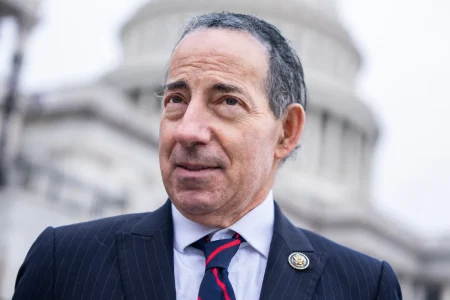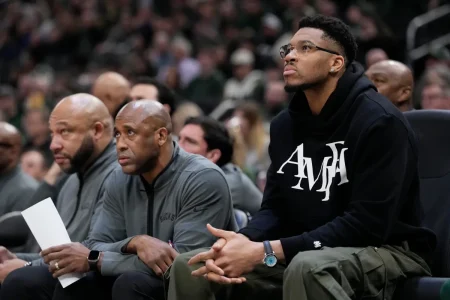Packers and Cowboys Battle to Rare Tie in Sunday Night Thriller
In a wild and unpredictable Sunday Night Football matchup, the Green Bay Packers and Dallas Cowboys fought to a 40-40 tie that left fans and analysts with more questions than answers about Matt LaFleur’s team. Entering as heavy favorites, particularly after their embarrassing loss to the Cleveland Browns the previous week, the Packers were expected to make a statement that would reestablish them as legitimate Super Bowl contenders. Instead, they delivered a mixed performance that showed both promise and concerning flaws, particularly on the defensive side of the ball. The much-hyped Packers defense, which had been touted as one of the NFL’s elite units, surrendered 40 points to the Cowboys, raising serious doubts about their championship credentials. This defensive collapse came as a particular shock given the preseason expectations for a unit that was supposed to be the backbone of Green Bay’s success this season. While Jordan Love and the offense showed moments of brilliance throughout the contest, their inability to score in overtime ultimately led to the rare tie result.
Perhaps the most frustrating aspect of the game for Packers fans came during the overtime period when poor clock management potentially cost Green Bay a victory. With the ball and the game on the line, Love led the offense on what appeared to be a promising drive, but the team’s leisurely pace ultimately ran out the clock before they could attempt a game-winning score. When questioned about this critical error in his post-game press conference, LaFleur’s response left much to be desired: “It’s always a fine line you’re battling. If I knew it was going to end like that, we would’ve gone faster.” This explanation rings hollow for a head coach in his fifth season who should understand the fundamental importance of clock management in late-game situations. Rather than acknowledging a strategic error, LaFleur’s comments seemed to deflect responsibility for what many view as an inexcusable mistake in a crucial moment.
The decision to play conservatively in overtime appears particularly puzzling given the circumstances. The Cowboys had exhausted all their timeouts, meaning that even if the Packers had only managed a field goal with time remaining, Dallas would have faced significant challenges in mounting a response. Moreover, the Packers’ offense was moving effectively against the Cowboys’ defense, suggesting that a more aggressive approach might have paid dividends. This conservative play-calling has been a recurring criticism of LaFleur throughout his tenure in Green Bay, with many observers noting his tendency to become overly cautious in high-pressure situations. Football wisdom generally dictates that playing for a tie is rarely the optimal strategy, yet LaFleur’s decisions seemed to accept this underwhelming outcome rather than aggressively pursuing victory.
The tie result places the Packers in an unusual position in the standings and raises legitimate questions about the team’s identity and direction. After starting the season with such promise, Green Bay has now delivered two consecutive underwhelming performances that have dampened early enthusiasm. Jordan Love continues to show flashes of the talent that made him Aaron Rodgers’ successor, but inconsistency remains an issue for both him and the offense as a whole. Defensively, the unit that was supposed to be among the league’s best has now been exposed in back-to-back weeks, forcing coaches to reevaluate both scheme and personnel. Special teams, often a weakness for the Packers in recent years, had both highlights and lowlights throughout the evening, contributing to the overall sense of a team still searching for its complete identity.
As the Packers prepare to return to Lambeau Field for a Week 5 matchup against the Cincinnati Bengals, the pressure on LaFleur and his coaching staff will be intensified. Another subpar performance could transform whispers about LaFleur’s job security into legitimate conversations about his future with the organization. While a 2-1-1 record is far from disastrous, the manner of Green Bay’s performances in recent weeks has eroded confidence in their status as contenders. The team that looked so dominant in Weeks 1 and 2 has disappeared, replaced by a squad that appears vulnerable and uncertain. The Bengals game now takes on outsized importance as an opportunity for the Packers to recapture their early-season form and silence the growing criticism surrounding both players and coaches.
In the larger context of the NFL season, this tie represents a pivotal moment for Green Bay. The NFC North has emerged as one of the league’s most competitive divisions, with the Detroit Lions establishing themselves as legitimate contenders and both the Minnesota Vikings and Chicago Bears showing signs of improvement. Every game—and even half-game in the standings—could prove crucial in what promises to be a tight divisional race. While a tie is indeed better than a loss in the standings, the Packers squandered an opportunity to maintain pace with their divisional rivals. As the season progresses, LaFleur and his team must address their evident weaknesses while building on their strengths if they hope to fulfill their preseason promise as Super Bowl contenders. For now, the tie serves as a fitting result for a team that appears caught between greatness and mediocrity, with their ultimate destination still very much undetermined.















